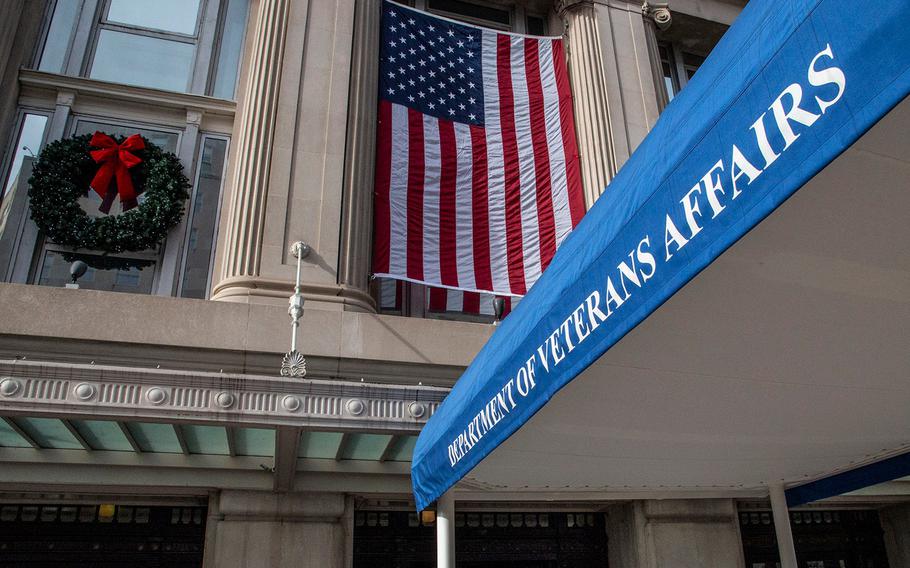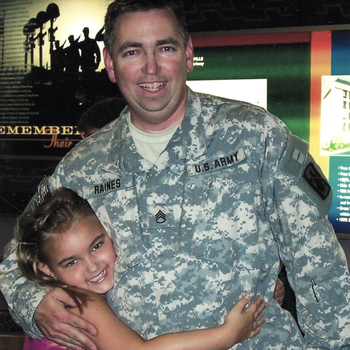
A proposed rule at the Department of Veterans Affairs to make it easier for veterans with a rare lung condition to qualify for disability benefits is being criticized by some veterans and a pulmonologist because the change requires tests and assessments that often fail to detect the chronic disease. (Stars and Stripes)
WASHINGTON — A proposed rule at the Department of Veterans Affairs to make it easier for veterans with a rare lung condition to qualify for disability benefits is being criticized by some veterans and a pulmonologist because the change requires tests and assessments that often fail to detect the chronic disease.
The lung ailment is called constrictive bronchiolitis, which is a toxic injury from exposure to burn pits, dust storms, jet fuel exhaust and industrial pollutants. Patients with the disorder experience inflammation, emphysema and scarring of the lungs.
Dr. Robert Miller, a scientist and physician at Vanderbilt Medical University who was part of the team that first identified the disease in troops 20 years ago, said the VA will require routine respiratory tests that are unreliable to confirm the diagnosis. The rule change also adds a diagnosis code for constrictive bronchiolitis to process veterans’ claims more efficiently.
Some veterans who have been exposed to toxins and developed constrictive bronchiolitis received 0% disability or a very low rating. Miller said he does not expect that to change without the proper testing and criteria.
Jim Raines, 61, of Alabama, a retired Army chief warrant officer, said he has been battling the VA for 12 years for recognition of the disease and how it has impacted his life. His battle continues.

Jim Raines with his daughter, Jenna, in Alabama in 2007 while he was on leave during a two-year deployment to Afghanistan. (Provided by Jim Raines)
Raines had an open lung biopsy that diagnosed him with constrictive bronchiolitis, but the VA did not accept the findings, he said.
“They were only interested in the pulmonary function tests,” said Raines, who served in Afghanistan in 2006 and 2007. “They agreed that I had a service-connected condition but then rated me at 0% because the PFT — a catch-all test for lung conditions — was normal.”
Some of the service members who Miller treated could no longer meet minimal physical fitness tests because of their breathing problems. Veterans with the incurable condition will still be denied health care and benefits once the VA changes the rule, he said.
‘’I have seen several patients who received one rating from the [Defense Department] only to have it downgraded by the VA. I have seen patients who have received a rating for constrictive bronchiolitis only to have their rating reduced without explanation,” said Miller, who previously conducted research at Fort Campbell, Ky., that looked at disabling respiratory illnesses reported by hundreds of service members returning from deployments in Iraq and Afghanistan.
However, Terrence Hayes, the VA press secretary, said the agency approved 307 veterans for disability compensation of constrictive bronchiolitis since passage of the Sergeant First Class Heath Robinson Honoring our Promise to Address Comprehensive Toxics Act, also known as the PACT Act.
“I was being bounced around to different VA doctors because my [pulmonary function tests] were showing me as normal,” said Cynthia Daniels, who had to quit her job as a police officer after leaving the military because of breathing problems.
Daniels, 46, of Montana, was a former specialist in the Missouri Air National Guard from 2000-06. During deployments to the Middle East, Daniels said she developed wheezing and shortness of breath that did not go away. She described coughing up a black substance from her lungs.
Daniels underwent a lung biopsy in 2014 that showed she has constrictive bronchiolitis. The biopsy found remnants of dust and metal fragments in her airways.
But the VA did not accept the findings as confirmation of the condition. She instead was given pulmonary tests that patients receive during routine medical checkups, which did not flag a problem.
After two years of appeals, Daniels said the VA connected her lung disease to her deployment, and she received a 100% disability rating. Daniels described the appeals process as frustrating and brutal.
Miller has since testified before lawmakers about the need for better medical criteria to support veterans’ claims for constrictive bronchiolitis. He told the Senate Veterans’ Affairs Committee in 2019 that many service members who deployed to combat zones in Iraq and Afghanistan were exposed to “particulate matter” that damaged their small airways.

Dr. Robert Miller at Vanderbilt Medical University. (Vanderbilt Medical University)
But their symptoms were dismissed by clinicians who misinterpreted initial normal test results for assessing oxygen levels, when a more comprehensive evaluation was needed, he said.
The VA relies on a pulmonary function test to diagnose many respiratory conditions, according to a notice published last week in the Federal Register on the new diagnosis code for constrictive bronchiolitis.
“PFTs are the cornerstone for evaluating respiratory impairment,” the notice reads.
But a VA study in 2022 recommended specialized medical teams for testing, diagnosing and treating veterans with the illness. Doctors would determine who might need lung biopsies and who might be eligible for a presumptive diagnosis of deployment-related lung injury.
“In the VA, there is not broad knowledge, understanding or recognition of constrictive bronchiolitis or of the group of service members with this condition,” Miller said.
Raines was diagnosed with constrictive bronchiolitis in 2012 after developing a chronic cough and fatigue after a deployment to Afghanistan.
The findings from a lung biopsy determined that Raines had constrictive bronchiolitis, emphysema, blood vessel damage and scarring from pneumonia.
But the VA did not accept the findings for a diagnosis of constrictive bronchiolitis, he said. The VA denied his disability claim in 2012, which he appealed and was turned down.
Raines refiled with the VA in 2016 and was denied again. He appealed again.
In 2023, he was awarded a 10% disability rating, 11 years after the original claim was filed.
He has since sought a higher rating but was turned down again in August.
“They only want to use the tests they have — the PFTs. That is their primary focus. The tests they use will never show anything with this disease,” Raines said.